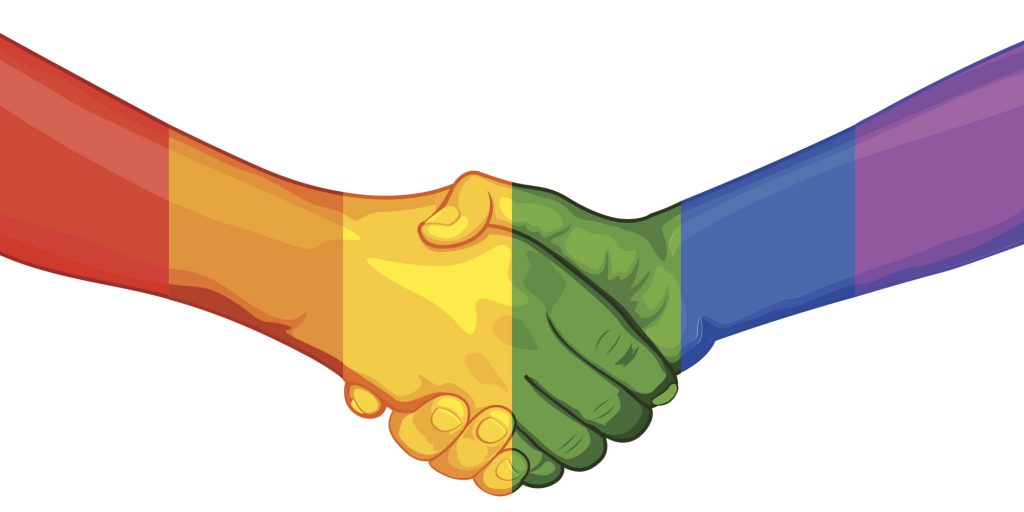In anticipation of the International Day Against Homophobia, Biphobia and Transphobia, we’ve invited Kathryn Richards from King’s Wellbeing and the LGBT+ Staff Network to pen a guest blog for us.
With International Day Against Homophobia, Biphobia and Transphobia on the horizon, you may have heard about the Great IDAHOBIT Bake-off on the 17th of May. As I moved to sign up in solidarity, I took a moment to check myself and realised two things; this was the first time I’d heard of IDAHOBIT and, whilst the concept seemed pretty self-explanatory, I had no real understanding of its history and importance. I could bake a pretty (or not so pretty) rainbow cake, but what purpose would that serve on its own?
Fast forward an hour and, with thanks to the powers of the internet, I had a better and more nuanced grasp, including the significance of May 17th to commemorate the WHO’s declassification of homosexuality as a mental illness, and the relevance of anti LGBTQ+ violence charity Galop as the beneficiary of the bake-off’s funds. It was a small step to take, but one that paved the way to more meaningful engagement with this key date in the LGBTQ+ calendar.
It’s moments like this that remind me that allyship to any group is a continual process and a journey of purposeful, informed actions, rather than a fixed, self-proclaimed status. There are many lessons along the way, with five in particular standing out from my own journey so far.
The Value of Listening
It’s good to talk, but it’s most important to listen. Whilst calling out inappropriate behaviour and language is crucial, it’s important to be able to identify and challenge more than just the most egregious examples of discrimination and that knowledge comes primarily from listening to the lived experiences of those around us and in the public eye.
Feedback is Your Friend
My personal journey has, on more than one occasion, involved screwing up, albeit unintentionally, and being called out on it. It can be uncomfortable to be vulnerable and take accountability for personal blind spots, but surely better than blithely repeating mistakes that serve to marginalise, whilst professing to be supportive all the while!
Broadening Understanding
Listening and being open to constructive criticism are both instructive, but it shouldn’t fall to those we know personally to ‘school’ us; there many pro-active ways to become informed. LGBTQ media, organisations such as Stonewall and Galop, combined with queer film and literature all help build a picture of the community’s diversity, with intersectionality being a key theme. Whilst I can never walk in another person’s shoes, appreciating the multifaceted nature of both identity and discrimination enables deeper engagement and empathy.
Taking Action
Most empowering for me has been learning how to be an active bystander. I used to equate challenging inappropriate language and behaviour with ugly confrontation, but this doesn’t have to be the case and will probably cause more damage than good. There are some excellent resources available to help practise bystander intervention without putting anyone at risk. A good place to start is the Hollaback! website, designed originally for situations of sexual harassment, but with universal principles that can be applied to any type of bystander situation.
Stepping Away from the Spotlight
Ironic, I know, given that I’m putting myself out there with this blog post! However, there’s a fine line between meaningful contributions at the appropriate time and monopolising conversations that should be led by members of the community.
In the end, though, it isn’t my place to self-define as an ally; that title can only be conferred by members of the communities one seeks to support, based on merit and trust. So, my pledge today is to approach IDAHOBIT 2019 better informed, engaged in more meaningful action, with another year’s worth of listening and lesson-learning under my belt.
